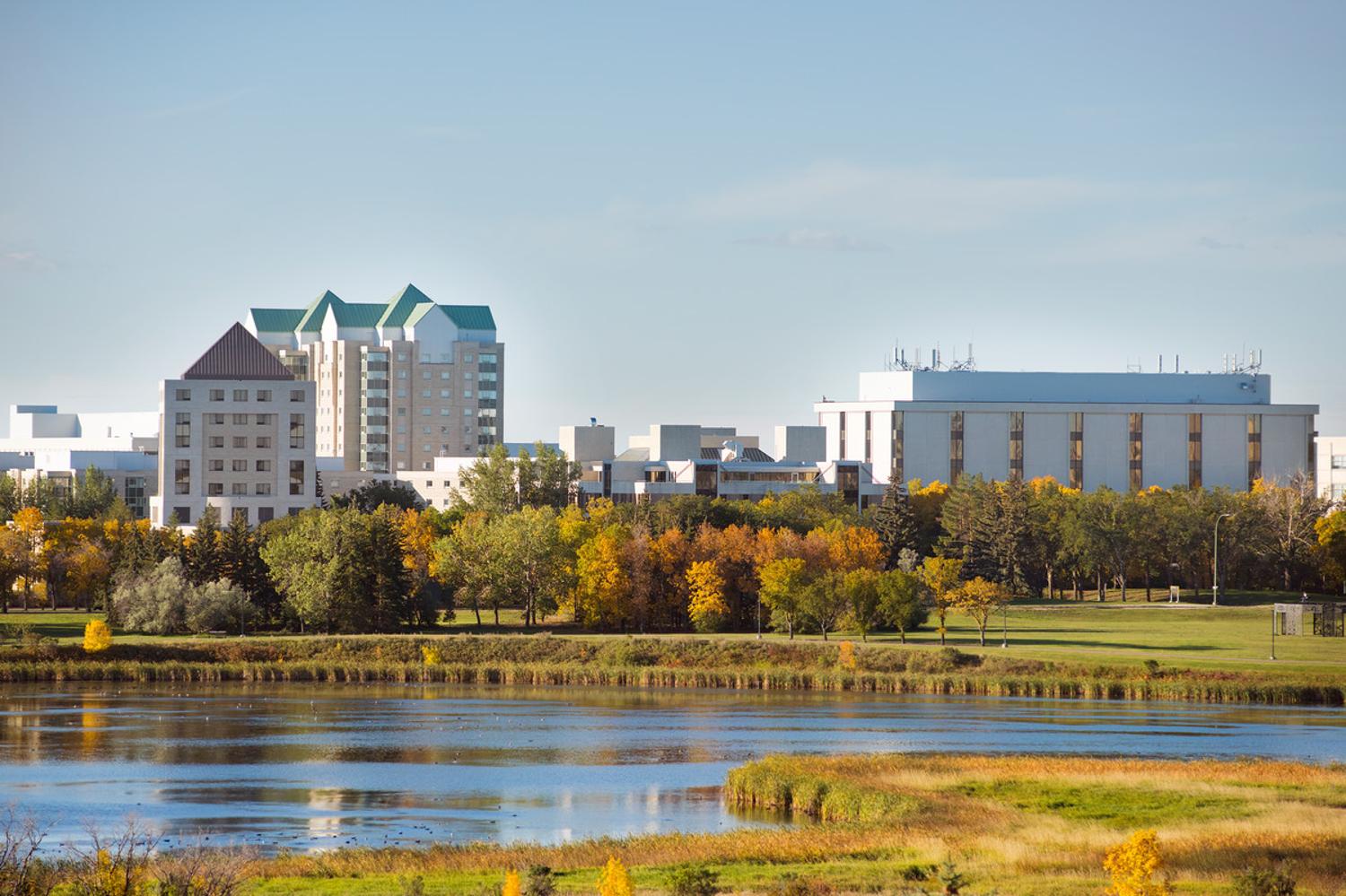Medical Radiation Technology
Medical Radiation Technology is a career in health care that lets you use state-of-the-art medical equipment and work with patients one-on-one.
Medical radiation technologists are highly trained specialists who perform medical imaging examinations. They produce images of body parts and systems using X-rays, computed tomography (CT scan) and magnetic resonance imaging (MRI). Medical imaging helps narrow the causes of an injury or illness and ensures that a diagnosis is accurate.
As a medical radiation technologist, you will have the knowledge and skills to support medical teams by providing diagnostic images with patient care expertise.
The Bachelor of Science in Medical Radiation Technology is a joint program with Saskatchewan Polytechnic. Students must first complete a two-year diploma in Medical Radiologic Technology at Saskatchewan Polytechnic. Then, students can apply to the U of R to complete another two years to earn their Bachelor of Science in Medical Radiation Technology.
The Bachelor of Science in Medical Radiation Technology is designed for those who want to advance their careers and develop their knowledge of the theory and research behind medical radiation technology.
What is Medical Radiation Technology?
Medical radiation technologists have hands-on training in the use of medical imaging equipment, and know how to position patients to get the best images and assess images. They also have knowledge and skills in:
- anatomy and physiology
- examination techniques
- X-ray equipment
- radiation safety and protection
- patient care and professionalism
In Canada’s health-care system, medical radiation technologists play key roles in diagnosis and treatment and offer advice to radiologists, radiation oncologists and other health-care providers. They explain procedures to patients, position patients, place equipment, apply safety procedures, and record patient data. They also have good communication skills.
Some courses in the medical radiation technology degree program include:
Introductory Radiation Science and Biophysics
Radioactivity exists naturally in the soil, water, and air in a variety of forms. Beneficial uses of manmade radiation include energy production, medical diagnoses and treatments, transportation safety, and precision industrial measurements. This course covers the principles of radiation science and explores safe uses of radiation for improving our lives.
Sociology of Health
This course introduces you to sociological perspectives on health and illness. The course will examine the history of health care, including the Canadian health-care system. Current debates over the future of Medicare will be examined, including the relative roles to be played by public and private systems.
Professional Ethics
This course examines the philosophical consideration of ethical problems which arise in the context of the conduct of various professions. Areas may include justice, business ethics, biomedical ethics, ethics of education, ethics of privacy and confidentiality (with applications to journalism, social work, psychology), and environmental ethics.
Economic Issues in the Canadian Health-Care System
This course surveys the Canadian health-care system from an economic perspective, examines the economic costs and socio-economic benefits of health care in this country, compares the health-care system here with those prevailing in other countries, and discusses common misconceptions about health care.
Quick Facts
Connect with us
Medical Radiation Technology Meet Your Faculty
Why Study Medical Radiation Technology at the University of Regina?
The Bachelor of Science in Medical Radiation Technology expands upon the practical knowledge obtained in Medical Radiologic Technology diploma programs, including scientific theory, workplace management, and professional ethics. This program provides a broader context for the work in the field of medical imaging.
As a medical radiation technology student, you will benefit from the extensive experiential learning and hands-on training obtained during your college diploma, followed by the benefits of a Bachelor of Science degree. This requires an additional two years of study, rather than the four years normally required for a Bachelor of Science.
Expand your skill set
Medical Radiation Technology trains you to understand and apply the principles of science and medicine as they relate to medical imaging. Building on your college diploma, you will gain a deeper understanding of all of the aspects of medical radiation technology.
Expert professors and research
Many faculty members are active scholars whose research occupies a significant portion of their academic work. By engaging in research, they remain at the forefront of knowledge, passing that knowledge on to their students.
Medical Radiation Technology Frequently Asked Questions
The Bachelor of Science in Medical Radiation Technology is a joint program with Saskatchewan Polytechnic. To qualify for admission, you must first complete a twoyear diploma in Medical Radiologic Technology from Saskatchewan Polytechnic, or a similar program recognized by the Canadian Association of Medical Radiation Technologists (CAMRT). You must also meet the admission requirements for the Faculty of Science. Students who meet the admission requirements will be granted 60 credit hours of block transfer credit toward their bachelor’s degree in Medical Radiation Technology.
Medical Radiation Technology Program Concepts and Goals
Potential employers in this growing field include hospitals, as well as radiology clinics, cancer clinics, community health centres and medical clinics.
Learn
The subjects you will study as part of your degree include physics, business, economics, math, statistics, and sociology. This will broaden your understanding of medical radiation technology and its different facets.
Expand your professional skills
You will learn about radiation science and biophysics, professional ethics, health economics, issues in Canada’s health-care system, common misconceptions about health care, organizational behaviour, and human resource management.
Get jobs
Medical radiation technologists work in emergency departments, operating rooms, mobile breast screening vans, diagnostic imaging departments and clinics.
What Can You Do With a Medical Radiation Technology degree?
Upon successfully completing your Bachelor of Science in Medical Radiation Technology, you will be ready for the next step of your career.
To explore minors that may be available in this program area, please visit the Academic Calendar or meet with your faculty advisor in the Academic Advising Office after you are admitted.
The jobs that Medical Radiation Technology graduates go on to include:
- Medical Radiological Technologist
- Nuclear Medicine Technologists
- Medical Radiation Therapists
- Magnetic Resonance Technologists
- Research Assistant
- Clinical Instructor
Related Programs
